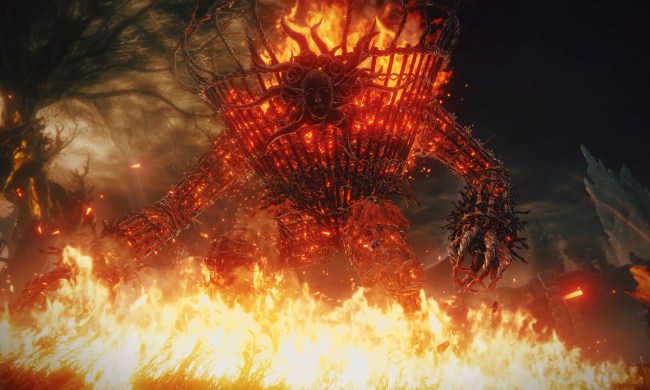Anyone who’s tried to critique Elden Ring in the past month has found themselves playing the most punishing game of all. The game launched on February 25 to nearly unanimous praise from critics and FromSoftware fans alike, but not everyone was won over. Some took to social media to voice their displeasure with certain parts of the game, like its lack of accessibility features or obtuse UI. Fans seemingly had an excuse for every quirk, insisting that everything was the product of intent and that addressing any quality of life complaints could ruin what makes the game special.
That argument has imploded with a simple game update. Elden Ring’s 1.03 patch brings several bug fixes and balance tweaks to the game, but one change in particular is catching players’ attention. NPCs will now be marked on the map after players meet them, allowing fans to better keep track of their previously obtuse quests. It was a quality of life update some players were begging for, but an opinion that was met with discourse and ridicule.
With stalwart supporters having no choice but to change their tune, the Elden Ring patch spotlights the most frustrating aspect of gaming right now: Everything is a culture war that leaves no room for nuance.
Quality of life
Arguments over
That cruel streak has continued with
It sounds like an agreeable enough critique, but it was met with heavy backlash. Fans argued that a lack of quest markers was a fully intentional decision. Some recommended that players use a notebook to track things instead, while others argued that adding markers would have ruined the game. That led to a now-infamous meme where a player plastered Ubisoft-style UI all over

What’s funny about the entire situation is that a lack of quest markers was never actually intentional design. After the update went live, some players reported that NPC markers were actually in the game’s 2021 network test. Those who felt like not including them was an oversight were right all along.
It’s as if the game’s most dedicated fans only have one consistent opinion: That they love the game and will say anything to defend its honor.
Culture war
Video games — like politics, Marvel movies, and Star Wars — are stuck in a culture war. There’s no room for nuance or constructive criticism when we’re rooting for or against things like a football team.
One of my primary complaints with
It was a somewhat disheartening interaction. If

Whenever this line of discourse pops up, I can’t help but feel a little hopeless. How can anything improve when user feedback is so difficult to dissect? You see it in review bombs for video games, where players will deflate or inflate a game’s user score on Metacritic for a variety of reasons unrelated to the quality of the game. You see it in Pokémon, where fans will defend Game Freak’s corner-cutting visuals to stick it to crybabies on the other side of the spectrum. You see it in the modern console war, where Xbox diehards will blindly trash anything Sony does and vice versa for an imaginary win.
None of it is constructive. It’s just noise that prevents us from having real conversations about what would improve the medium we love.
I love
We could have it so much better. The only thing standing in our way is ourselves.



